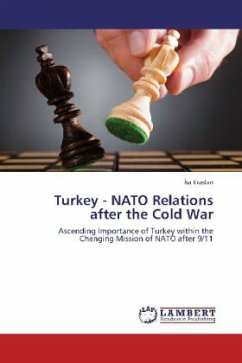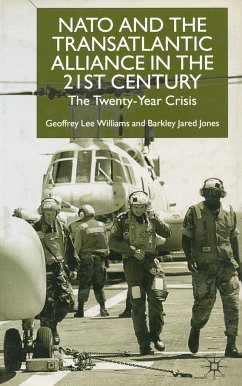
The Dissolution of Yugoslavia and the American Diplomacy 1991-95
The Road to Dayton
Versandkostenfrei!
Versandfertig in 6-10 Tagen
32,99 €
inkl. MwSt.

PAYBACK Punkte
16 °P sammeln!
In the period 1991-1995 two administrations struggled with shaping a credible policy on the former Yugoslavia in the wake of her violent breakup and ensuing civil war. Decision-makers within the administration and transatlantic Alliance were torn between the two, mutually exclusive vantage points held by those who favored the U.S. intervention on strategic and moral grounds, and those who predicted that if it did, it would become embroiled in a Vietnam -style quagmire. The civil war in the former Yugoslavia gradually evolved into testing ground for measuring American commitment to European sec...
In the period 1991-1995 two administrations struggled with shaping a credible policy on the former Yugoslavia in the wake of her violent breakup and ensuing civil war. Decision-makers within the administration and transatlantic Alliance were torn between the two, mutually exclusive vantage points held by those who favored the U.S. intervention on strategic and moral grounds, and those who predicted that if it did, it would become embroiled in a Vietnam -style quagmire. The civil war in the former Yugoslavia gradually evolved into testing ground for measuring American commitment to European security affairs. Energetic shuttle diplomacy, a NATO bombing campaign, and the deployment of American troops to Bosnia would finally prove crucial for enforcing peace. This chain-of-events, initiated by the Clinton administration, reasserted American leadership in the post-Cold War world, culminating in the Washington-sponsored Dayton peace agreement of 1995. To understand this endgame the book addresses the factors that compelled the Clinton administration to step in and assert leadership. For scholars of international relations.












